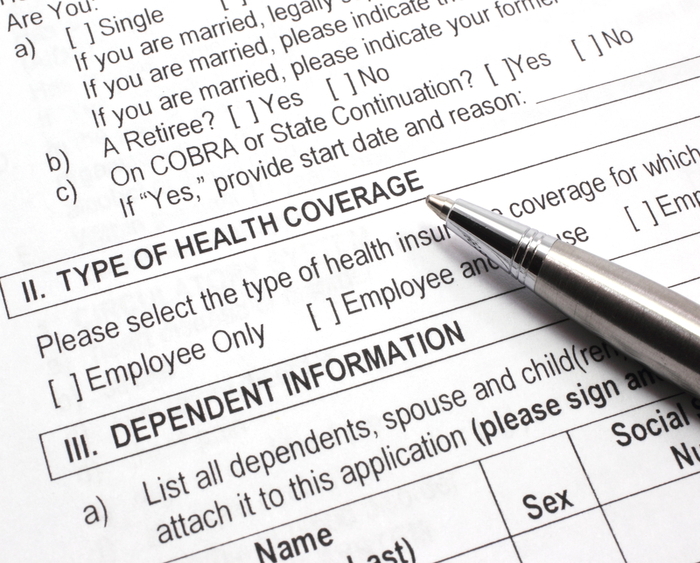- Calls to this hotline are currently being directed to Within Health, Fay or Eating Disorder Solutions
- Representatives are standing by 24/7 to help answer your questions
- All calls are confidential and HIPAA compliant
- There is no obligation or cost to call
- Eating Disorder Hope does not receive any commissions or fees dependent upon which provider you select
- Additional treatment providers are located on our directory or samhsa.gov
COBRA Eating Disorder Coverage
Determining what is and isn’t covered by your health insurance policy can be difficult and frustrating. But answering this question is even more important when it comes to finding help for an eating disorder.
If you have COBRA coverage, this can make things even more complicated. But here, we hope to answer some of the most common questions about COBRA coverage for eating disorders.
What is COBRA Coverage?
COBRA, or the Consolidated Omnibus Budget Reconciliation Act, is a federal law regarding health insurance. It was designed to help extend healthcare coverage to individuals who lost their employer-sponsored policy after losing a job.
Perhaps one of the most important points about COBRA is that it is not a healthcare provider in and of itself. When receiving treatment through COBRA coverage, your original health insurance provider is still footing the bill. COBRA is simply a law that extends this coverage for some former employees. [1]
It is also worth noting that, under COBRA coverage, you’re expected to pay the entire monthly premium, or cost, of healthcare coverage, plus a small administrative fee. This is generally more than most employees are used to paying for health coverage, since many companies will cover a portion of monthly healthcare premiums.
The Department of Labor’s FAQ page has more information on how COBRA works.

Who is Eligible for COBRA Coverage?
In order to be eligible for COBRA, you must:
- Have a group health plan that’s covered by COBRA
- Experience a “qualifying event”
- Be considered a “qualified beneficiary” of that event
While this sounds intimidating, many people meet these requirements. “Qualifying events” essentially refer to the circumstances surrounding your job termination, and being a “qualified beneficiary” mostly has to do with when you were fully covered.
Still, the continuation of coverage under COBRA is not guaranteed. For example, the circumstances surrounding how you lost your job may affect whether or not you’re eligible.
In most situations, termination of employment will not affect your eligibility for COBRA healthcare coverage, though being fired for gross misconduct will.
The Department of Labor has more specific information about who qualifies for COBRA care.
What is the Benefit of COBRA Coverage?
COBRA applies specifically to group health plans.
When an employer purchases a group health plan, it’s essentially like buying in bulk. This allows the provider to spread their risk among a wider pool of customers, which, in turn, enables them to offer lower costs.
COBRA coverage works to keep you in this pool. It allows you, as an individual, to continue receiving coverage at these same group-rate prices. The extension of care also allows you to keep your same policy and doctors.
That said, it should not be taken for granted that COBRA coverage is the most affordable health insurance option after losing your job. Particularly when it comes to coverage for family members, there may be more affordable options available. [2]
Does COBRA Cover Eating Disorder Treatment?
This is where things can get tricky.
If you are eligible for, and elect to receive, COBRA continuation coverage, your policy will be identical to the one offered by your employer. This is true for as long as you keep your COBRA coverage.
For example, if the terms of the group health plan change for active employees, they will also change for you while on COBRA coverage.
So, if your health insurance policy covered treatment for eating disorders while you were employed, the same will most likely still apply while you’re on COBRA coverage. But changes in group health plan terms or the expiration of COBRA coverage will affect this. [3]
What Types of Eating Disorder Treatment Will COBRA Cover?
COBRA coverage is a continuation of the existing healthcare plan provided by your former employer. In that way, the policy will cover any type of eating disorder treatment that was previously available to you.
However, there are some aspects specific to COBRA to keep in mind.
COBRA continuation coverage is available only for a limited time—either 18 or 36 months. How long you can stay on COBRA is determined by the qualifying event that resulted in your application for COBRA. [4]
COBRA coverage can also be terminated prematurely for a number of reasons, including a failure to pay premiums on time or your former employer ceasing to offer a group health plan to active employees. [4]
Eating disorder treatments can be lengthy, so this is important to keep these factors in mind when looking for programs.
How to Sign Up for COBRA Coverage
If you are eligible for COBRA continuation coverage, you will have 60 days after losing your job to elect it. This period starts either on the date you are given your election notice or the date your coverage would have ended, whichever is later. [5]
You can sign up online or speak with your former employer’s HR department about how to receive coverage.
The paperwork you are issued from your former employer should contain all the necessary information on claims procedures. Once a claim is underway, the process should be identical to any other health insurance claim.

Finding Help for an Eating Disorder
Dealing with the emotional and physical aspects of an eating disorder are difficult enough. And worrying about insurance only adds to the stress of the situation.
Remember that not all health insurance policies cover this type of treatment. If you’re thinking about signing up for COBRA, make sure to check the details of your former employer’s policy first, to see whether it offers the type of coverage you need. And double-check with any programs or treatment centers, to ensure they accept the insurance you’d have.
You may also want to speak to your physician or therapist for additional advice. There are many resources available to help find the treatment and coverage needed to help with an eating disorder. COBRA is not your only option.
If you or someone close to you is struggling with an eating disorder and needs treatment, the most important thing is to remember that help is always available.
Resources
- Continuation of Health Coverage (COBRA). 2023. U.S. Department of Labor. Accessed January 2023.
- Crail, C., Hall, A. (2022, May 10). What You Need To Know About Group Health Insurance For Open Enrollment. Forbes. Accessed January 2023.
- FAQs on COBRA Continuation Health Coverage for Workers. U.S. Department of Labor. Accessed January 2023.
- COBRA Rights Checklist. (2022). National Eating Disorders Association. Accessed January 2023.
- COBRA Continuation Coverage Questions and Answers. Centers for Medicare and Medicaid Services. Accessed January 2023.
Published on May 11, 2023 Published on EatingDisorderHope.com

